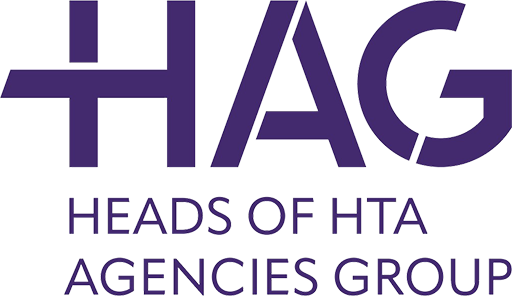European HTA is carried out with the aim of supporting health policy makers in identifying new health technologies with proven, patient-relevant added value. It contributes to their universal and affordable access as well as to the sustainability of healthcare systems in the public interest. [1]
With the adoption of the HTA Regulation (HTAR), Joint Clinical Assessments (JCA) will be produced at a Union-level and based on common methodology applicable across the EU. This level of Member State collaboration will enable ‘inform[ed] decision-making in order to promote equitable, efficient, and high-quality health systems’ [2] as also stated in the HTAR. [3]
The Heads of HTA Agencies Group notes that this willingness to cooperate on healthcare extended into the Covid-19 pandemic, where a number of European institutions received a mandate to procure essential medicinal products and medical devices. These EU Joint Procurement Agreements [4], allowed Member States to voluntarily join forces to purchase vital equipment and medicines in a time of limited supply.
Now that there is a better post-pandemic outlook, it seems timely to improve on the processes and explore ways in which better information can be provided to decision makers to inform such Joint Procurement Agreements.
As the issue of joint procurement continues to be part of joint and Union-level discussions, the HAG would like to stress the vital role of HTA in these activities. Where available and applicable, a Joint Clinical Assessment (JCA) should form the basis of any joint or Union-level procurement activity. Where a JCA is not available, any joint procurement decision should be based on a clinical assessment grounded in robust clinical evidence. In all cases, HTA must rest on the competence and experience of established HTA bodies.
HTA integrated as part of joint or Union-level procurement activities would enable ‘health policy makers in identifying new health technologies with proven, patient-relevant added value’ as well as continue to ‘contribute to their universal and affordable access’. [5] The foundation of a common HTA platform based on the HTAR provides a strengthened potential for cooperation on procurement.
The Heads of HTA Agencies Group therefore stresses the need for HTA to be included in European-level procurement decisions. Subsequent legislation should also ensure such inclusion. [6]
[1] Heads of HTA Agencies Group. General principles of good cooperation in the field of health technology assessment (March, 2022). Available here: http://htahag.eu/wp-content/uploads/2022/03/General-principles-of-good-cooperation-in-the-field-of-health-technology-assessment.pdf
[2] Brian O’Rourke, Wija Oortwijn and Tara Schuller, “Announcing the New Definition of Health Technology Assessment,” Value in Health 20, 6 (2020): 824-825, https://doi.org/10.1016/j.jval.2020.05.001.
[3] Recital 5. European Commission. Regulation (EU) 2021/2282 of the European Parliament and of the Council of 15 December 2021 on health technology assessment and amending Directive 2011/24/EU (Text with EEA relevance). Available here: https://eur-lex.europa.eu/legal-content/EN/TXT/?uri=CELEX:32021R2282.
[4] European Commission. Commission Decision C(2014) 2258 final (April, 2014). Available here: https://ec.europa.eu/health/publications/commission-decision-c2014-2258-final_en.
[5] Heads of HTA Agencies Group. General principles of good cooperation in the field of health technology assessment (March, 2022).
[6] Directive 2014/24/EU of the European Parliament and of the Council of 26 February 2014 on public procurement.
